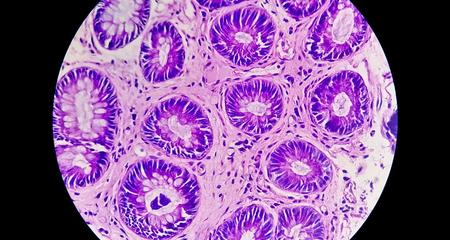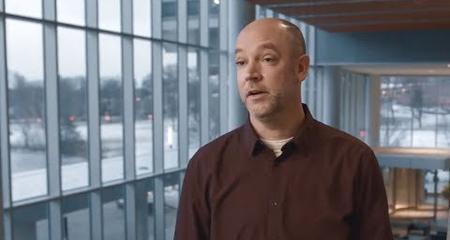Stomach cancer is also known as gastric cancer. Both terms refer to cancers that arise anywhere between the point where the stomach joins the esophagus (the gastroesophageal junction) and the duodenum (the first portion of the small intestine).
In most cases, the cause of stomach cancer is unknown. However, there are some genetic conditions that increase one’s chance of developing stomach cancer. Other known risk factors are the presence of untreated helicobacter pylori bacteria in the stomach and a diet that includes large amounts of smoked foods.
Signs and Symptoms of Stomach Cancer
Symptoms of stomach cancer can include:
- Difficulty swallowing
- Abdominal pain
- Unexplained weight loss
- Feeling full after eating only a little
- Nausea
- Vomiting
- Blood in the stool or vomit
Diagnosing Stomach Cancer
If stomach cancer is suspected, physicians order diagnostic tests to detect the presence of tumor and determine how far any cancer may have spread. The first step is often an esophagogastroduodenoscopy (EGD). During this procedure, a physician uses a small camera mounted on a flexible tube to examine the lining of the stomach and other nearby tissues. If cancer is found, patients typically undergo computed tomography (CT) or positron emission tomography/computed tomography (PET/CT) scans to determine how far the disease has spread. Some patients also receive an endoscopic ultrasound, which helps physicians determine how deeply tumor tissue has invaded the wall of the stomach.
CT and PET scans do not always pick up cancer that has spread to the lining of the abdomen. When there is no radiographic evidence of abdominal spread, the patient may undergo a diagnostic laparoscopy to confirm that the abdomen is truly free from cancer. During this minimally invasive procedure, a surgeon uses a keyhole incision and a laparoscopic camera to examine the abdominal cavity.
Treatment for Stomach Cancer
Physicians develop an individualized treatment plan based on the type and stage of the stomach cancer. The patient’s overall health and personal preferences are also key considerations.
Earlier-Stage Disease
When all tests confirm that the cancer tissue is confined to the stomach and nearby lymph nodes, treatment can focus on achieving a cure. Treatment typically consists of chemotherapy, radiation therapy and surgery.
Advanced Stomach Cancer
Stomach cancer can spread to organs such as the liver or the lungs. For patients whose stomach cancer has spread to other organs, treatment consists of chemotherapy. These patients may also be eligible for immunotherapy drugs available through a clinical trial.
Advanced Cancer Confined to the Stomach and Abdominal Cavity
For some patients with advanced stomach cancer, malignant cells have spread to the lining of the abdominal cavity but not any other organs. These patients may be eligible for a newer treatment option that combines cancer surgery with drug therapy.
The patient first receives 2 to 4 months of intravenous chemotherapy with the goal of shrinking the abdominal metastases. If the amount of cancer in the abdomen is reduced enough, the patient may then undergo a procedure known as HIPEC. During this surgery, physicians remove as much tumor tissue as possible and then circulate a heated chemotherapy solution throughout the abdominal cavity. For eligible patients, this treatment approach can significantly extend survival.
Clinical trials
Our physicians are actively investigating new treatments for stomach cancer. One of the most promising areas of research today is immunotherapy. This treatment approach unleashes the patient’s own immune system to fight cancer cells. Many stomach cancer patients can access immunotherapy drugs and other research protocols through our clinical trials program.
Virtual Visits Are Available
Safe and convenient virtual visits by video let you get the care you need via a mobile device, tablet or computer wherever you are. We’ll gather your medical records for you and get our experts’ input so we can offer treatment options without an in-person visit. To schedule a virtual visit, call 1-866-680-0505.
Recognized as High Performing by U.S. News & World Report
Froedtert Hospital is recognized by U.S. News & World Report as high performing in three adult specialties and 16 procedures and conditions, including cancer, colon cancer surgery and gastroenterology and GI surgery.More to Explore





